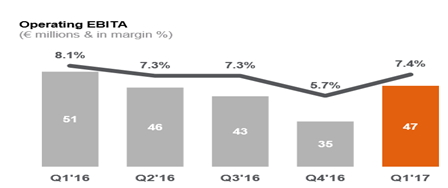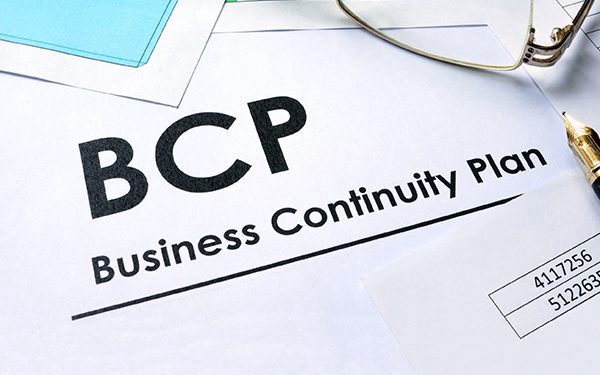Contents:


It is also part of the information that we share to our content providers (“Contributors”) who contribute Content for free for your use. The content of this article is intended to provide a general guide to the subject matter. Pick your 5 favourite companies, get a daily email with all news updates on them. This committee has made this suggestion regarding SPACs in its report submitted to the government recently. According to reports, the Company Law Committee was set up in 2019 to make recommendations to boost ease of doing business in India. Prescription of framework for due-diligence, audits, financial reporting etc.
The Game Right Now: Find The Sector That Is Going To Collapse – Seeking Alpha
The Game Right Now: Find The Sector That Is Going To Collapse.
Posted: Mon, 03 Apr 2023 19:31:50 GMT [source]
Considering their lifestyle and areas of interest, engaging with high-profile athletes and actors helps sponsors to create market buzz and generate interest among their target audience. In India, the SPAC concept was in the spotlight recently when a renewable energy company, ReNew Power, took the SPAC approach to get listed on Nasdaq. Although SPAC deals are seeing a rise around the world, they are yet to turn big in India.
All You Need to Know About Special-Purpose Acquisition Company (SPAC)
He manages his portfolio in data analytics in irelandn Equities and also legally facilitates other people’s money in the same with the message – ‘Enegma Capital’. The contents on this website have been created in order to ease the customer’s understanding of the subject matter. Rukesh Reddy, Director of Digital Transformation at Citibank in New York, talks about why every investor needs to lean heavy on software companies while building an investment portfolio. Since 2020, many big names have sprung up, benefitting from SPACs, while some popular companies went public. The SPAC popularity helped companies raise billions of dollars without going through the tedious IPO process.
This might make the Indian capital markets more trustworthy for investors and draw in more capital into the Indian economy. The prospectus of the IPO with respect to the SPAC primarily emphasizes on the sponsors, and less on revenues and history of the company since the SPAC is sans any performance history or revenue reports. All proceeds from the IPO or all the money raised from the IPO are held in a trust account until a company is identified as an acquisition target. SPACs are publicly-listed shell companies that are formed to acquire or merge with an existing company. Chamath Palihapitiya, a former Facebook executive and founder of venture capital firm Social Capital, is widely considered to be the king of SPACs.
- The series of events highlighted the lack of due diligence in the SPAC process compared to the standard IPO and brought in some criticism and skepticism surrounding SPACs.
- It has asked the panel to submit a report on permitting SPACs along with checks and balances to lessen risks under the current law.
- Prior to this companies like Yatra and Videocon DTH has been listed on the NASDAQ.
- The SPAC which raises 80% of the money through an IPO does not have any source of revenue or operations when it is set up.
- The gross proceeds raised by SPACs amounted to over $83 billion in 2020 and $162 billion in 2021.
This is done by selling shares to the general public, just like a regular IPO. Investors also have the choice to purchase a warrant that gives them an option to buy more shares at a later stage at a fixed price. A special purpose acquisition company or ‘blank cheque’ company is essentially a shell company set up solely to acquire or merge with an unlisted company, which gives its investors exposure to emerging businesses.
Initial Public Offering
Announced an agreement to merge with RMG Acquisition Corp II, a blank-cheque company, in what became the first involving an Indian company during the latest boom in SPAC deals. Nearly 2 years in the pandemic era, the SPAC regime is the light at the end of tunnel for investors and targets alike especially those looking to bypass the traditional IPO route. The regulations also mandate that the SPAC issuer must complete the business combination within a maximum of 36 months from the date of listing. Another significant hurdle perceived for such transactions would be the current Liberalized Remittance Scheme (“LRS”) limit of USD 250,000 per financial year. In case Indian shareholders are individuals getting shares in the overseas merged entity, the LRS mandates that the fair market value of shares acquired should be under USD 250,000/financial year, which is highly unlikely to be the case in such transactions. Even though the global interest for SPACs has increased considerably, which have been around for many years as a concept in matured jurisdictions like US – the framework is yet to find a foothold in India.
Why SPACS Are Flailing as Market Conditions Shift – The New York Times
Why SPACS Are Flailing as Market Conditions Shift.
Posted: Thu, 02 Jun 2022 07:00:00 GMT [source]
If they fail to find such a company, they must return the funds collected to the respective investors. An SPAC aims to raise money in an initial public offering without any operations or revenues. The money that is raised from the public is kept in an escrow account, which can be accessed while making the acquisition. IFSCA has recently come out with IFSCA Regulations, 2021 which introduce a listing framework for SPACs on the recognised stock exchanges in IFSCs, as follows.
What are the steps in SPAC listing?
When creating the https://1investing.in/, the stakeholders must have at least one company on its acquisition list but should not disclose their target companies during the entire process. The government is considering a regulatory framework for special purpose acquisition companies to lay the ground for the possible listing of Indian companies through this route in the future. The government is reportedly considering a regulatory framework forspecial purpose acquisition companies to lay the ground for the possible listing of Indian companies through this route in the future. The SPAC path is preferred over a regular IPO because in such a transaction, the private company converts to a public listed company with a higher level of pricing certainty, deal-term control and in a much shorter duration of time. Further, investor confidence in these shell companies is further boosted by the fact that they have received sponsorship from well-known investors like CEO of Dell Technologies – Michael Dell.
Here, the only difference is the IPO investors have no idea about which company they are investing into. The capital or money raised by the SPAC IPO is invested into an interest-earning account and can be used only for company acquisition or to be returned to the investors. SPACs are not tied to a specific business model or industry and hence are usually considered less risky than traditional IPOs. Moreover, the funds held in the SPAC are held in trust until a merger or acquisition is completed.

Also, even as the SPACs are mandated to return money to their investors in the event no merger is made within two years, the fineprint of several SPAC prospectuses shows that certain clauses could potentially prevent investors from getting their monies back. A company can go public through the SPAC route in a matter of months, while the conventional IPO process is an arduous process that can take anywhere from six months to more than a year. The provisions regulating oppression and mismanagement in companies are an integral part of corporate governance. They ensure that interests of a company are protected and that no shareholder or… The regulations also provide in detail the IPO process to be followed, disclosures in the initial offer document as well as continual disclosure requirements, SPAC specific obligations etc. But there is growing interest from SPACs in other countries to pick up Indian targets.
Explained: What are SPACs for which a regulatory framework may be in the works
The main methods by which a private company can become a public company are; the traditional Initial Public Offering method, the direct listing method, or the method of merger with a Special Purpose Acquisition Company . Alpaca Securities LLC, a member of the Securities Investor Protection Corporation, will transmit your orders to the stock exchange and will serve as the custodian for your securities account. In the event that Alpaca Securities LLC fails, and is placed in liquidation under the Securities Investor Protection Act, securities in your brokerage account may be protected up to $500,000. In our view, investing in SPACs should be limited to those investors who have the financial wherewithal to take on greater risk and who are willing to put in the extra time and effort to properly evaluate the risks and rewards. Considering a regulatory framework for Special Purpose Acquisition Companies to lay the ground for the possible listing of Indian companies through this route in the future.
- Addition of provisions in Companies Act 2013, providing an exit option to dissenting shareholders of a SPAC if they don’t agree with the choice of the target company identified.
- The funds SPACs raise in an IPO are placed in an interest-bearing trust account.
- The company would also need to have a net worth of Rs 1 crore at the least in all of the preceding three years.
- A special purpose acquisition company or ‘blank cheque’ company is essentially a shell company set up solely to acquire or merge with an unlisted company, which gives its investors exposure to emerging businesses.
- Considering a regulatory framework for Special Purpose Acquisition Companies to lay the ground for the possible listing of Indian companies through this route in the future.
In case the acquisition does not go through, the SPAC investors are returned their funds after deducting brokerage and bank fees. So to sum it up, a Special Purpose Acquisition Company is set up by investors with the intention of raising capital through an IPO and to subsequently acquire another existing operating company. The purpose of a Special Purpose Acquisition Companies is to raise capital through an Initial Public Offering.
What drives the SPAC market?
It is evidence of this faith reposed by foreign investors in Indian unicorns, especially tech companies, that we are increasingly seeing US SPACs exclusively focused on opportunities in India. SPACs are mandated to return money to their investors in the event no merger is made within two years. Early last year, renewable energy producer ReNew Power announced an agreement to merge with RMG Acquisition Corp II, a blank-cheque company. A mix of the above existing legal, regulatory and administrative framework in India presents barriers for a SPAC to be incorporated in India. When issuing the IPO, the management of the SPAC appoints an investment bank to carry out the due procedures of the IPO.

For example, according to the 2013 Companies Act, the Registrar of Companies can remove any registered company that does not start its operations within a year making it infeasible for the SPAC mode. Till the completion of the merger or acquisition, the SPAC funds are kept in an escrow account and have to be refunded to the investors if they cannot find a suitable company for investment within 2 years. Unlike private investments, shares in a SPAC can be traded on the public markets.

This is why they are called “blank check companies.” IPO investors typically have no idea about the company in which they will ultimately be investing. Notably, the most prominent person riding the SPAC wave is none other than Venture Capitalist and Social Capital CEO Chamath Palihapitiya. Also known as SPAC king, Palihapitiya was early to the SPAC wave, sponsoring a blank-check company that merged with Richard Branson’s space startup Virgin Galactic in late 2019. Since then, the former Facebook executive has sponsored SPAC IPOs for online real estate firm Opendoor and health insurance company Clover Health. Palihapitiya has three more blank-check companies on the market, with one in agreement to take Fintech startup SoFi public. This term refers to an operating company that is either acquired by or merges with a SPAC and eventually becomes a public company.
Are SPACs good investments?
SPAC investing has been less profitable for individual investors. Most SPACs underperform the stock market and eventually fall below the IPO price. Given SPAC's poor track record, most investors should be wary of investing in them.
Additionally, the Securities & Exchange Board of India requires the private company to declare its tangible assets and operating profits for the last three to five years before becoming eligible for an IPO or public offering. SPACs are an excellent vehicle to invest or gain exposure to companies that are not yet publicly traded. This kind of investing is quite attractive for investors who prefer to be part of a company with a potential for significant growth right from its grassroots level.
How do SPACs make money?
SPACs raise money largely from public-equity investors and have the potential to derisk and shorten the IPO process for their target companies, often offering them better terms than a traditional IPO would.
This can be one of the ways of empowering overseas listing for start-ups, something that NASSCOM has prescribed to the government on numerous events. This is probably going to be welcomed by the start-up community, make India an appealing destination amongst the business community, thereby supplementing India’s excursion towards turning into the world’s biggest startup hub. The founders provide the starting capital for the company and they are set to benefit from a sizeable stake in the acquired/target company. The founders usually hold an interest in a certain industry when kick starting a special purpose acquisition company.
These companies possess no assets other than the funds that they raise, which are dependent on the market, are based on the future of the company, and therefore can present a higher risk, particularly for retail investors. While an IPO is a public offering of shares by an already established company, a SPAC is a blank check company created with the sole purpose of acquiring an existing company and taking it public. Unlike traditional IPOs, blank check companies do not have an existing business, product or service. They are only formed to raise capital for the purpose of finding and acquiring an established company.
He has sponsored six such companies, raised a total of $4.34 billion, and acquired businesses across several sectors including space travel, health insurance, financial services and real estate. Earlier this week, Palihapitiya’s SPAC group Social Capital Hedosophia filed for seven new SPACs. Private Investments in Public Equity is when an institutional investor buys stock directly from a public company below market price. PIPE has become a common feature in closing SPAC acquisitions to boost capital investment or to increase the overall transaction. SPACs provide investors the ability to recoup their initial investment at their discretion with the opportunity to participate in the upside of a privately negotiated deal.
What is a SPAC simple explanation?
A special purpose acquisition company (SPAC) is formed to raise money through an initial public offering (IPO) to buy another company. At the IPO, SPACs do not have business operations or stated targets for acquisition. SPAC shares are structured as trust units with a par value of $10 per share.